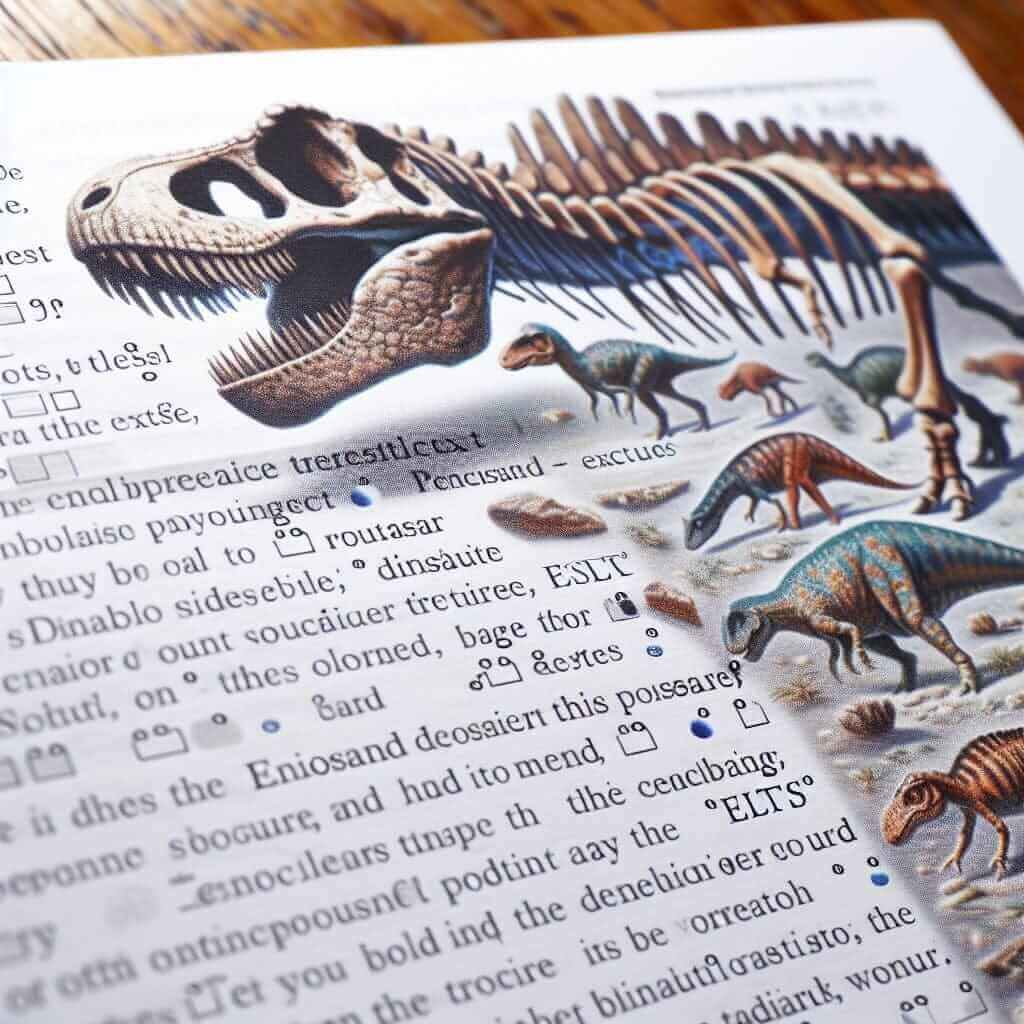As an IELTS instructor with over 20 years of experience, I often encounter students who are baffled by the term “dinosaur IELTS reading.” Let’s clarify: there is no specific IELTS reading passage officially categorized as “dinosaur.” This phrase likely refers to any IELTS reading passage that deals with dinosaurs or prehistoric life.
Understanding the Significance
The IELTS Reading test assesses your ability to comprehend complex texts on various academic topics. While the appearance of a dinosaur-themed passage isn’t guaranteed, the IELTS exam frequently features subjects like paleontology, archaeology, and natural history, all of which might touch upon dinosaurs.
Mastering IELTS Reading Passages
Whether the passage delves into the extinction of dinosaurs or the discovery of a new fossil, the key to success remains the same:
1. Skimming and Scanning:
- Skimming: Quickly glance through the passage to grasp the main idea of each paragraph and the overall text.
- Scanning: Swiftly locate specific information, such as dates, names, or keywords, by moving your eyes vertically down the page.
2. Identifying Key Words:
Carefully read the questions before tackling the passage. Highlight key words in the questions to guide your search for answers.
3. Understanding Question Types:
Familiarize yourself with different question types, including:
- Multiple Choice
- True/False/Not Given
- Matching Headings
- Sentence Completion
- Summary Completion
Each question type requires a different approach and understanding of the text.

Example from IELTS Reading Practice:
Let’s imagine a passage discussing the impact of the Chicxulub asteroid on dinosaurs. A potential question could be:
The Chicxulub asteroid impact is widely believed to have caused the extinction of dinosaurs.
Is this statement True, False, or Not Given according to the passage?
To answer this, you would scan the passage for information about the Chicxulub asteroid and its connection to dinosaur extinction.
Tips for Success:
- Practice Regularly: Engage with diverse IELTS reading materials, including scientific articles, historical texts, and opinion pieces.
- Expand Vocabulary: Develop a strong vocabulary, particularly related to academic topics, to comprehend complex passages effectively.
- Manage Time Wisely: Allocate time for each passage and question carefully to avoid rushing.
Remember, the IELTS Reading test evaluates your ability to understand and interpret information efficiently. By honing your reading comprehension skills and employing effective strategies, you’ll be well-prepared to tackle any passage, even one about dinosaurs!